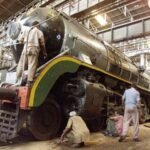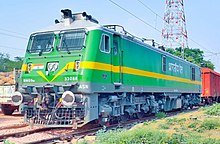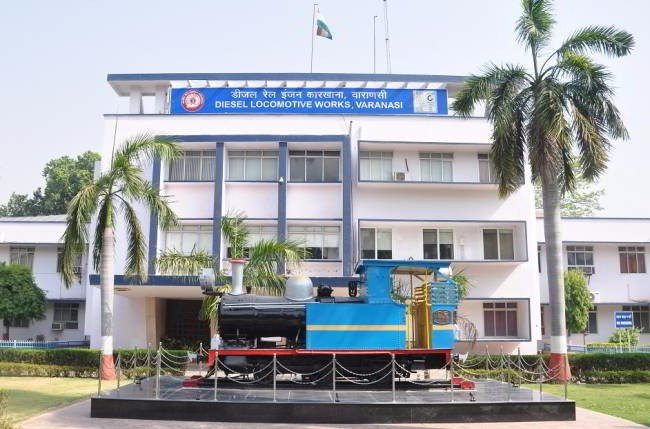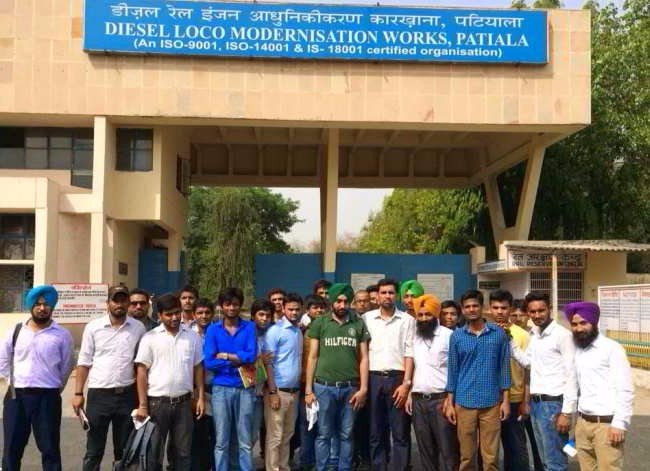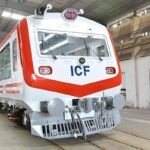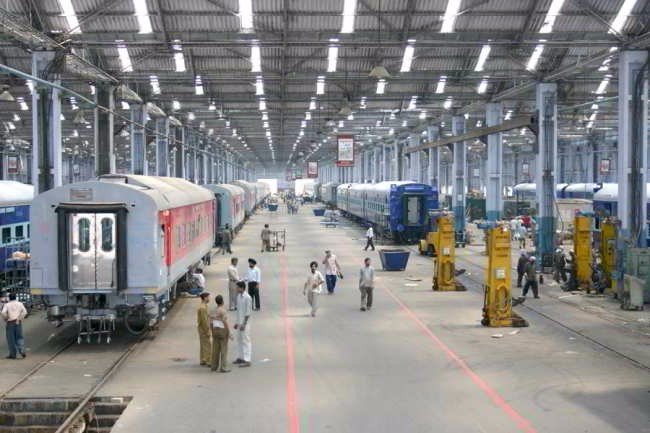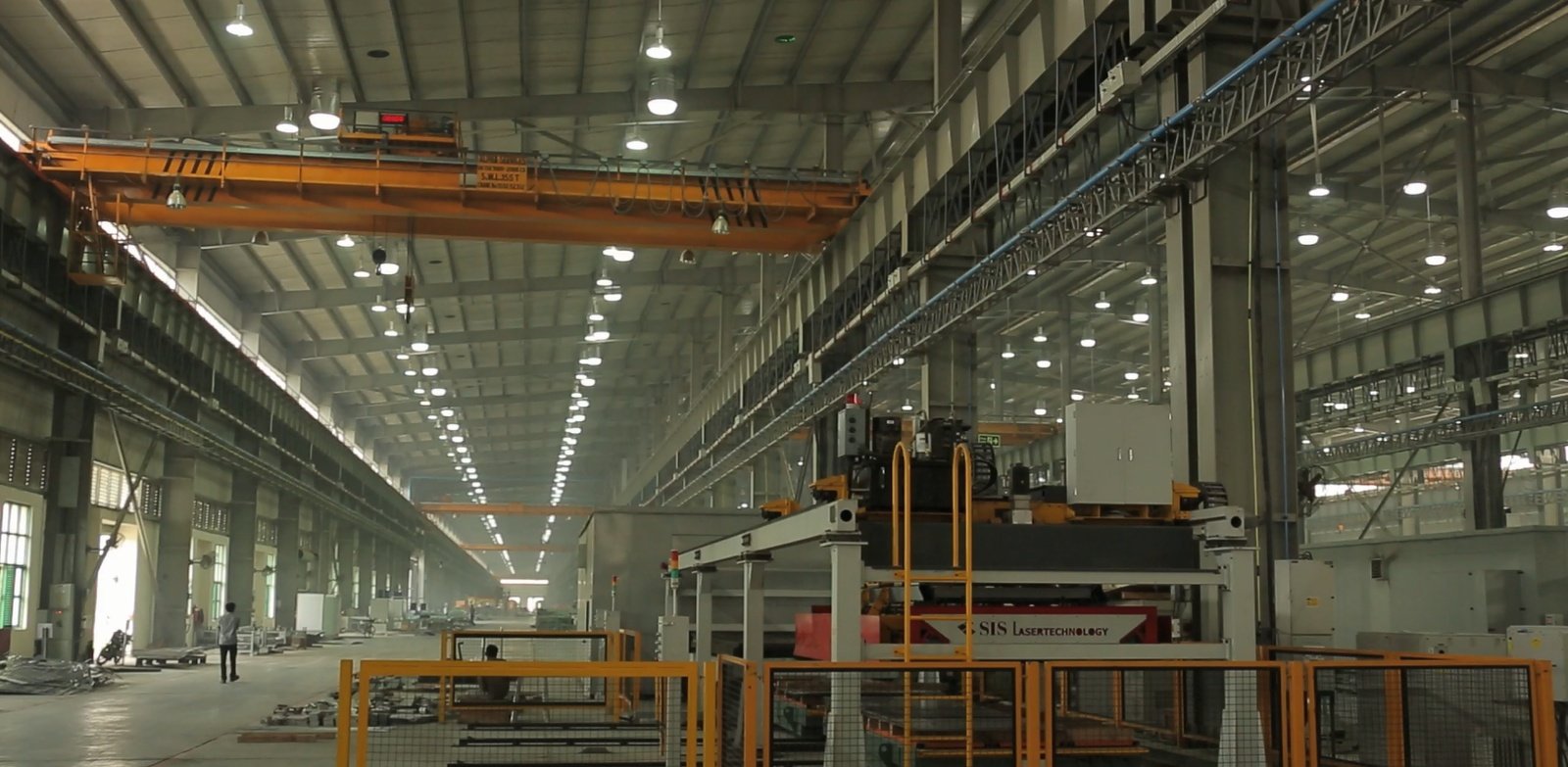India has a number of production units manufacturing locomotives, coaches and other rolling stock, wheels and axles as well as other accessories required by the railways. These were set up for attaining self-sufficiency in this important sector and function as independent unit under the control of the Railway Board. The Defence Ministry of India is one of the important non-railway customers of the production units of the Indian Railways.
Immediately after independence, all the rolling stock had to be imported from countries like USA, UK and Australia with high cost and no control over the supply schedule. Today these seven production units can produce 10,000 passenger coaches and the 1000 locomotives to meet the requirement of Indian Railways, which is in the main self-sufficient now.
Despite the declared objective of “Make in India”, the government has in recent years been targeting seven of them for corporatisation, which is known to be a first step towards privatisation. This has been met with strong opposition from the concerned workers and their families and the government has not been successful so far. This was not the first time that workers and their families had defeated the plan; in 2006 the government had to take back the proposal of privatising the coach factory in Kapurthala, because the families, especially the women, had fought so hard against that for 71 days.
These production units have proved their efficiency by reducing the number of men required per unit production. From the year 2012 to 2018, to produce one locomotive, the average number manpower required has come down from 51 to 30.5 in Chittaranjan Loco Works, 22.8 to 19 in Diesel Loco Works, Varanasi, while the average manpower to produce one coach has come down from 8.1 to 4.5 in Coach Factory, Chennai and 3.9 to 3 in the Rail Coach Factory, Kapurthala.
This has greatly controlled the costs for IR. In 1995, IR introduced LHB coaches from Germany, with average cost per coach Rs. 5.5 crore. Now an LHB coach is produced in India for only Rs. 2 crore. Likewise Indian Railways is also proposing to purchase locomotives for the dedicated freight corridor (DFC) at a cost of Rs.20 crore each. But CLW is producing the same capacity of locomotives at a cost of Rs.12 crore each!
As per the government’s policy they are going to stop diesel engines and connect all the railway networks using electricity. This is done in order to curb the expenses as we import the fuel from other nations. Despite this, the General Electric Company of the US was given a private space and permission to manufacture new diesel engines! The government bought ABB engine worth Rs. 22 crore while we manufacture similar engines in India for around Rs. 9 crore only in Chittaranjan. The coaches that are produced in Rae Bareilly are worth Rs. 2 crore while the government imports them for Rs. 6.5 crore!
The Indian Railways currently has 12,500 locomotives and 70,000 coaches with a total value of Rs. 3.1 lakh crores. Making Indian Railway production units as corporations will increase the cost of locomotives and coaches.
Moreover these seven production units have 36 sq. km of land. ICF is located in a prime location of metropolitan Chennai city, where the cost of land is more than 10,000 rupees per sq. ft. That means that the cost of land under ICF is more than Rs. 12,000-13,000 crores. If it is handed over to corporates, it will be at a throwaway price of less than Rs. 2,500 crore.
Apart from factories, these production units have colonies, hospitals, good sports facilities, schools, and so on. All of them are self-sufficient mini-towns!
Chittaranjan Locomotive Works (CLW), West Bengal
Chittaranjan Locomotive Works, was launched in 1950 to produce 120 average-sized steam locomotives. Electric locomotive production commenced in 1961. Production of diesel-hydraulic locomotives began in 1968 but was later discontinued.
Today it manufactures only electric locomotives which it has been continuously upgrading. It is the largest locomotive manufacturer unit in the world now, and produced 431 locomotives in 2019–20. This has to be compared with the installed capacity of 200!
CLW has total assets worth more than Rs. 960 crore, which include the township, hospital, workshop, with in-house facilities for machining and assembly of wheelsets, fabrication, bogies, etc. The steel foundry was set up for supplying steel casting products of locomotives. CLW has in house machining and assembling of wheel sets, fabrication and machining bogies. The facilities include modern CNC machines, plasma cutting machines, and inert gas welding sets.
The total turnover of CLW on 31st March 2020 was Rs. 4564.95 crore.
Banaras Locomotive Works (BLW), Varanasi, Uttar Pradesh
Founded in 1961 as the Diesel Locomotive Works (DLW), it rolled out its first locomotive three years later, on 3 January 1964. In July 2006, DLW outsourced manufacture of some locomotives to Parel Workshop, Central Railway, Mumbai.
In March 2018 it successfully converted two old diesel locomotives into an electric locomotive, which was a first in the world. It was the largest diesel-electric locomotive manufacturer in India. DLW stopped manufacturing diesel locomotives in March 2019 and was renamed as BLW in Oct 2020. In March 2020, it developed the country’s first bi-mode locomotive, the WDAP-5. BLW today produces mostly electric locomotives today.
BLW is also saving a lot of money by renovating old coaches and making them as good as new ones.
Diesel-Loco Modernisation Works, Patiala, Punjab
Formerly known as the Diesel Component works, the Diesel-Loco Modernisation Works was set up in 1981 to extend the service life of diesel locomotives of the Indian Railways and raise the level of their availability. It upgrades and overhauls locomotives. It also started to manufactures of WAP 7 and WAG 9 locomotives.
The following activities are carried out here:
• Manufacture and supply of high quality components and sub-assemblies as spares.
• Manufacture of components hitherto imported and ensuring timely availability.
• Remanufacture of critical assemblies for the unit exchange system of the diesel locomotive’s maintenance system of the railways
• Rebuilding locomotives and power packs, and retrofitting the locomotives with systems incorporating latest technological development
• Manufacturing electric locomotives.
Integral Coach Factory (ICF), Perambur, Tamil Nadu
In 1948, the Government of India decided that a separate Railway Coach Building Works should be established with a view to attain self-sufficiency in coaches for Indian Railways.
The Integral Coach Factory is one of the earliest production units of independent India. It was inaugurated in 1955. The total estimated cost of the factory was ₹ 7.47crore.
ICF manufactures a range of coaches, from ordinary third class coaches to semi high speed train sets, Linke-Hofmann-Busch (LHB) coaches, in addition to self-propelled train sets (that do not need a locomotive).
Production in ICF steadily increased over the years and in 2019 it produced 4300 coaches . ICF has turned out more than 65,000 coaches, the highest by any rail coach manufacturer in the world.
The ICF consists of two main divisions, namely, shell division and furnishing division. The shell division manufactures the skeleton of the rail coach, while the furnishing division is concerned with the coach interiors and amenities. ICF manufactures more than 170 varieties of coaches including metro rakes, first and second class coaches, pantry and kitchen cars, luggage and brake vans, self-propelled coaches, diesel-electric tower cars, accident relief medical vans) inspection cars, fuel test cars, track recording cars and luxury coaches.
ICF has also turned out the first semi high speed train set of India, named the Vande Bharat Express, and has since then turned out one more.
The Railway Board is planning to operate MEMU (Mainline Electrical Multiple Unit) trains between the cities to relieve the locos which can be put for other main line operations and to save engine turnaround time. Unlike regular trains, MEMU train sets require maintenance only once in every 10-15 days. The main advantage of MEMU trains is that they allow for faster acceleration and deceleration. During the month of December 2020, ICF has manufactured 9 state of the art MEMU trains and is planning to manufacture more in the coming years.
The plant employs about 10,000 people and it is spread over 511 acres in a prime location of Chennai and is well connected by land, air and waterways.
Rail Coach Factory (RCF) in Kapurthala, Punjab
Established in 1985, the RCF has manufactured more than 30,000 passenger coaches of different types including self-propelled passenger vehicles. These constitute over 50% of those in the Indian Railways. In the financial year 2013–14, it produced 1701 coaches against the installed capacity of 1500 per annum. During the year RCF produced 23 different variants of coaches for high-speed trains like Rajdhani, Shatabdi, double-decker and other trains.
The factory in association with DRDE also developed a highly cost-effective indigenous technology for the treatment of bio-waste in coaches. Around 2096 bio-toilets were fitted in 2013–14 alone.
The factory has been exporting coaches to Bangladesh and to several South East Asian and African countries which have Metre Gauge rail networks and Indian Railways’ past experience in Meter Gauge rolling stock has proved handy in serving these markets.
From 7355 in 2018, the number of workers in RCF has been reduced to 6630.
The assets of RCF include a township with two Kendriya Vidyalayas and number of other schools. It has a lake complex with, stadiums and courts for indoor and outdoor games as well as clubs, shopping complexes, banks, Post Office, staff canteen, Handicrafts Centre, crèche and Computer Centre.
Modern Coach Factory in Raebareli, Uttar Pradesh
This factory was inaugurated in 2012, occupying a total area of 541 hectares of land.
It was planned at a total cost of Rs 3,192 Crore, with annual production capacity of 1000 (Linke Holfmann Busch) coaches.
The factory has exceeded this target every year since 2018-19, including during the pandemic. In 2019-20 production reached the astounding figure of 1930, which was almost double the capacity!
Besides manufacturing stainless steel LHB coaches , MCF is taking up manufacturing of train sets, metro coaches, aluminum body coaches, bullet train coaches and high speed coaches to meet upcoming demands.
Rail Wheel Factory (RWF), Yelahanka in Bengaluru, Karnataka
This factory, which is also known as Wheel and Axle Plant, manufactures wheels, axles and wheel sets of railroad wagons, coaches and locomotives for the use of Indian Railways and overseas customers. The unit was commissioned in 1984. Its annual turnover is about Rs.82 crores and it employs more than 2000 workers.
Till early 1980s Indian Railways was importing about 55% of requirement of wheels and axles. Indigenous capacity was available only at Tata Iron & Steel Company [TISCO] and Durgapur Steel Plant [DSP]. The TISCO plant was technically not capable of meeting the changing requirement of wheels and axles and so production was discontinued.
The cost of imports was high with prices rising in the world market. Financing of imports, delays in supplies and limited availability of foreign exchange adversely affected wagon production and rolling stock maintenance. It was in this context that the RWF was set up. The objective was that DSP and the RWF should be able to totally meet Indian Railways requirement for standard wheels and axles so that their import could be stopped.
This factory uses cast steel technology in the manufacturing of wheels which utilizes scrap steel collected from Railways’ own workshops as raw material. The products are engineered with little scope for human errors and there is strict quality control. It has a planned capacity to manufacture of about 70,000 wheels of different sizes, 23,000 axles and to assemble 23,000 wheel sets. It employs over 2000 personnel and has an annual turnover of about 82 crores.


